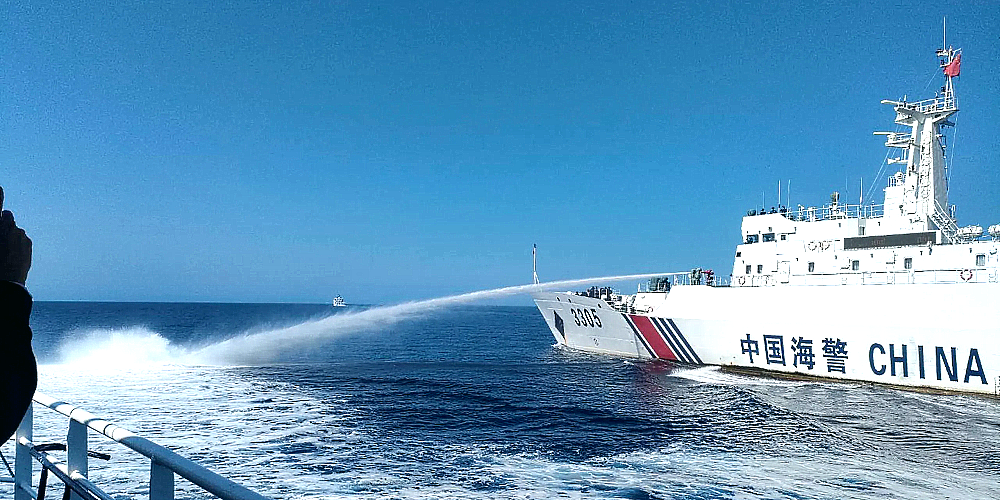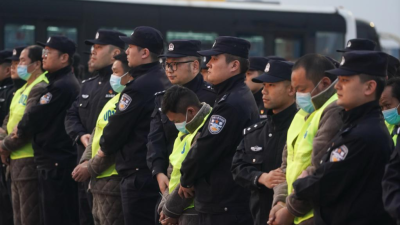
That word may best describe the state of mind of China when it criticized the plan of Defense Secretary Gilbert Teodoro Jr. to beef up military presence in Batanes, the country’s northernmost province facing Taiwan.
Teodoro bared that plan after his recent visit to the troops stationed in Batanes, including the naval detachment in the adjoining Mavulis Island.
In standard knee-jerk reaction to anything that may be said about Taiwan that does not conform to China’s treatment of that island nation, its foreign ministry spokesperson said Taiwan is “at the heart of China’s core interests and is a red line and bottomline that must not be crossed.”
However, he did not say how that plan would adversely affect China’s repeated declarations of sovereign authority over Taiwan and its intention to use force, if necessary, to assert that.
His statement drew a strong rebuke from the Department of National Defense (DND) that China has no business warning the Philippines about its military plans within its territory.
Arrogant statement
The DND further said that it is its mandate “to secure the sovereignty of the State and integrity of the national territory as enshrined in the Philippine Constitution …,” adding that “China should refrain from engaging in provocative rhetoric and activities if it truly wants to earn the widespread trust and respect that it is trying so hard to gain but has so far been unable to.”
Jay Batongbacal, head of the Institute of Maritime Affairs and the Law of the Sea of the University of the Philippines, expressed his support for Teodoro’s plan as the improved outposts would help secure the country’s fishing grounds and the fishermen operating in the Batanes area.
Whoever was behind or crafted China’s arrogant statement must have labored under the impression that the Philippines is still being led by its fair-haired boy, former president Rodrigo Duterte.
Recall that during the Duterte administration, in consideration for promises of billions of pesos of grants and loans for infrastructure projects, Duterte practically worshiped at the foot of China’s leader, Xi Jinping.
Province of China
Duterte turned a blind eye on China’s brazen intrusion into the Philippines’ exclusive economic zone in spite of an international arbitral ruling that upheld its rights over it, which he publicly described as a mere piece of paper that should be ignored.
Worse, in a forum where local and international reporters were in attendance, he disgracefully suggested that the Philippines should be made a province of China!
As things turned out later, except for three projects, the promised massive financial assistance turned out to be all air. Duterte was ignominiously taken for a ride by China.
That subservient stance must have encouraged China into treating the Philippines as its docile ward and therefore gave it the “right” to poke its fingers in the latter’s internal affairs.
And so China had no qualms about taking issue with the DND’s plan to strengthen the military presence in Batanes, which is a purely domestic matter, that would hardly make any difference to whatever designs it has over Taiwan.
Exercise of sovereignty
In other words, China saw ghosts where there are none.
Note that on the occasions that the United States and some European countries rapped China for the militarization of islands and atolls in the West Philippine Sea (or in the South China Sea), China would cry foul about foreign interference in its domestic or internal affairs.
In China’s book, it’s hands-off by other countries on anything that involves matters within its territory, or what it considers as part of it by some dubious historical basis, but it is perfectly alright to intrude into those of another country, like the Philippines.
Strengthening the military infrastructure in Batanes is an exercise of sovereignty.
A new sheriff
No country, no matter how economically or militarily powerful it may be, has the right to question, much less cast aspersions on the motives behind that action.
If China thinks its latest bullying act would intimidate the Philippines into returning to its ways during the Duterte administration or ditch the Philippines’ military partnership with US and other Western countries to keep the sea lanes in this part of the world freely navigable, it’s flat wrong.
ADVERTISEMENT
ADVERTISEMENT








































